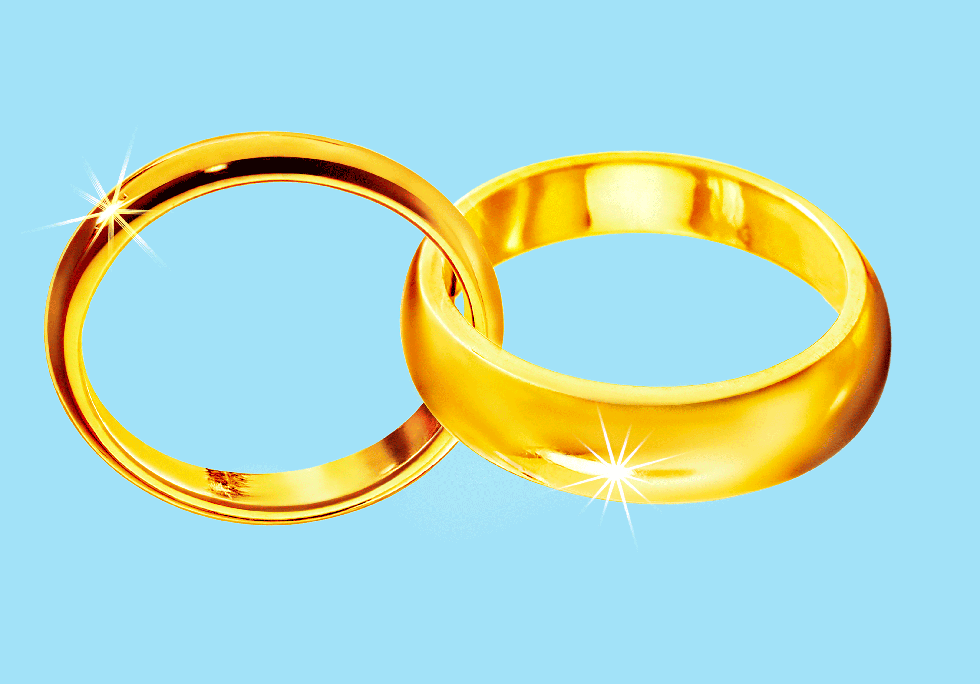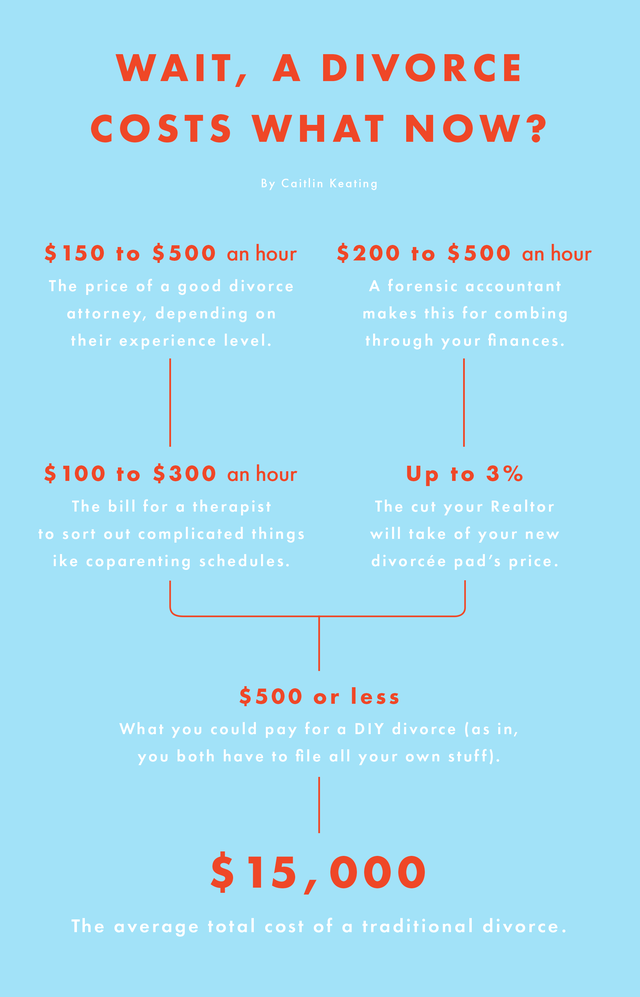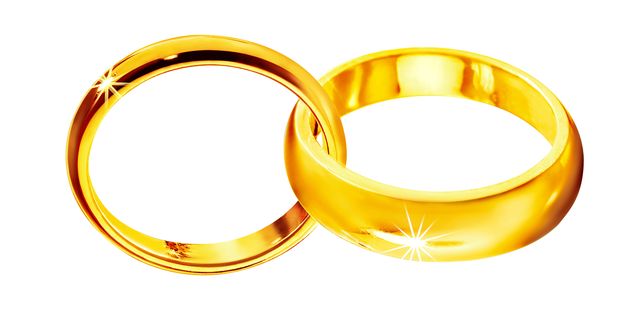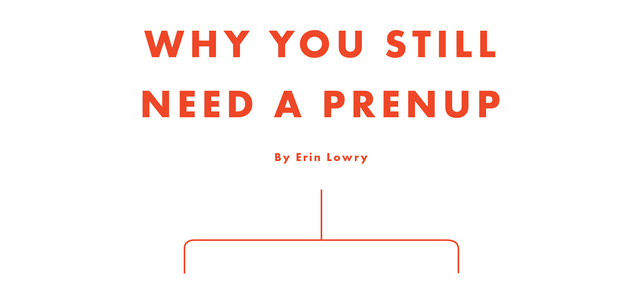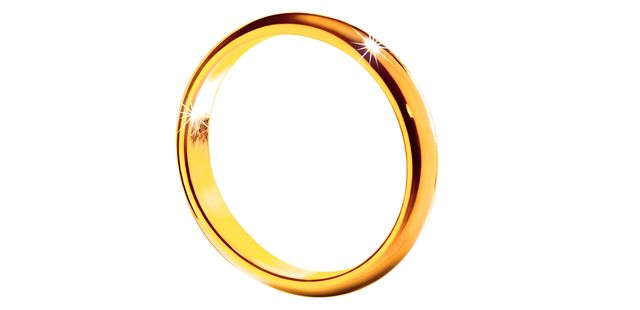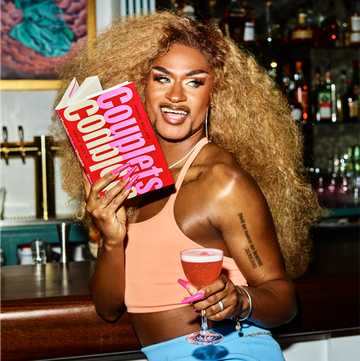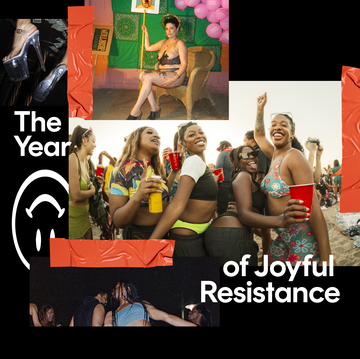Millennials are on a killing spree.
Plastic straws, mayonnaise, Hooters restaurants, fabric softener, the existence of middle children...if previous generations held it near and dear to their hearts, we’ve made sure it’s almost ceased to exist. And not to toot our own horns or anything, but our latest victim may be our most impressive yet. According to recent research, millennials have officially decimated the divorce rate.
While exact numbers are weirdly hard to come by, experts estimate that the rate has fallen roughly 24 percent from its peak in 1981—and millennials are a huge reason why. (As for that old “50 percent of married couples get divorced” stat you grew up hearing and fearing: “It’s unclear if it was ever true, and it’s certainly not true now,” says Justin Wolfers, a professor of public policy and economics at the University of Michigan and a leading authority on divorce in America.)
Stop your eye roll—this isn’t just a side effect of fewer young people getting married. No matter how you slice it, the numbers that do exist all reach the same conclusion: Hookup-loving, debt-ridden, career-obsessed millennials are responsible for bringing down divorce, says Wolfers. And experts predict that the number of successful long-term unions will continue to increase over the next decades.
So how did we do it? Watching our parents duke it out from the back seat of the car on painfully awkward family vacations certainly didn’t set us up for success...or, um, did it? While older generations have been chastising our horniness and commitment phobia, we’ve been perfecting the eternal bond. And lucky for you, we’re in the mood to share our secrets.
It’s not that Lauren, 24, doesn’t want to get married. It’s just that after watching her mom and dad suffer through a sudden and messy split when she was 17, she’s more than a little reluctant to make any relationship legally binding—and her bar for holy matrimony is set extremely high. “It took a ton of work to come to terms with how the divorce affected me and still affects me,” she explains. “I have a lot of fear when it comes to relationships lasting. I’m afraid I’m going to fall into the same trap as my parents.”
Lauren’s in no rush to settle down, and she’s far from alone in her desire to take her time. “Most Americans think millennials are just reckless—that they are not going to marry at all—and that’s simply not true,” says Helen Fisher, PhD, a biological anthropologist and senior research fellow at The Kinsey Institute. “They really do love love. They are eager to fall in love, and 89 percent believe that they can remain married long-term. It’s just that they’re practical about the legal problems that come with divorce.”
“Millennials see divorce all around them,” Fisher continues. “They see their parents divorcing and remarrying and older people on dating sites. They even have their parents asking them for dating advice. In an unstable world, they want their relationships to be stable.” In other words, behaviors that may look erratic or cynical—delaying marriage, avoiding exclusivity—are actually protective measures against the drama of a big-deal split. And based on the current numbers, our strategy seems to be working.
Back in the day, relationships were supposed to go like this: First came marriage, then came sex. Now (at least among most millennials), it’s basically the exact opposite. And while the hookup culture we’re frequently (and, come on, unfairly) criticized for might look messy, it’s a big part of what’s helping us figure out the future.
“Singles want to know every little thing about somebody before they get serious with them,” explains Fisher. “And you learn a lot between the sheets. Not just how they have sex, but whether they’re patient, kind, humorous, and a good listener.” She has a much nicer term for all the sleeping around we do: “fast sex, slow love.” Meaning, yeah, we’re down to bone someone we hardly know (heart you, birth control), but when it comes to falling in love, we’re dead serious.
By Fisher’s analysis, our generation has developed a relationship formula that goes more like this: “Just friends → friends with benefits → introducing someone to our friends → moving in together. It’s this methodical for a reason,” she says. “Millennials don’t want to ‘catch feelings’ until they’re positive that the person they’re with is someone they could be with long-term. Marriage used to be the beginning of a relationship—now, it’s the finale.”
Then there are those other, higher priorities we have, like paying off student debt and getting comfortable in our careers. From a purely statistical standpoint, checking these off by the time we say “I do” means we’re better poised for marital success than our parents were, explains Philip Cohen, PhD, a sociology professor at the University of Maryland and author of The Coming Divorce Decline. In fact, his research shows that getting married after age 25, finishing college, and establishing a career are three big factors that fend off divorce.
Not only can achieving these things mean we’re going into marriages with fewer stresses, but it also sets us up pretty nicely for less fighting over things like debt with the wife or hubs. “Financial security is a top priority for marital success,” explains Susan Brown, chair of sociology at Bowling Green State University and codirector of the National Center for Family & Marriage Research. She sees millennials delaying marriage because they have no desire to put a financial burden on a spouse.
Evidence of how much this matters to young people can be seen in the bios and behavior on most of our dating apps. As Brown puts it: “You need to have all your ducks in a row before you’re viewed as marriage material.”
Once we do get hitched, one of the happiest reasons millennial couples stay together is...we actually like each other. “If you go back a few decades, everybody was getting married by their mid-20s, including people who were in shitty relationships,” says Wolfers. “Then not surprisingly, a bunch of these people got divorced. Today, those who are marrying are in good relationships.” Most of us are saying yes to forever simply because we want to.
And when millennials do get divorced, it’s not the seemingly life-ending catastrophe it used to be, because we know that it’s possible to move on. When, for example, Natalie, 28, split from her high school sweetheart after seven years together, she nervously started dating as a 20something divorcée. A few swipes in, she realized something wild: Nobody really cared that divorce was part of her story.
The final numbers on how much, exactly, millennials have decimated the big D won’t come in for a while. As Wolfers (grimly) explains: “We won’t know until millennials are all dead.” But, guys, we’ve already killed so many things...why not add literal death to the list too?
Don’t be scared. These legal docs are the smartest way to talk financials before saying “I do,” which more couples are realizing (a 2016 survey found a 51 percent boost in the number of millennials seeking prenups in the past three years). Here, the myths versus the realities.
Prenups are for rich people who marry not-so-rich partners.
Sure, that’s one reason a prenup may be necessary. But you may also need one if either you or your partner has a child or wants to protect money you had before getting married, says Linda Rosenthal, a matrimonial lawyer in New York City.
Getting married means automatically inheriting the other person’s debt. Signing a prenup is the only way to avoid that.
Awkward, maybe, but you can make it less so by bringing it up early in your engagement and explaining why you want one. Like, “I love you, but we can’t predict the future.”
Think of a prenup as an insurance policy on your marriage that you hopefully never have to use. Signing one comes with a high up-front cost—depending on where you live, plan to spend a few thousand dollars on a standard agreement. But divorce can be way more expensive and messier. And right now, cocooned in a happy love bubble, you’re more likely to be kind and generous with each other. So do yourselves a favor: Get the insurance policy out of the way and enjoy the rest of this lovey-dovey time worry-free.

